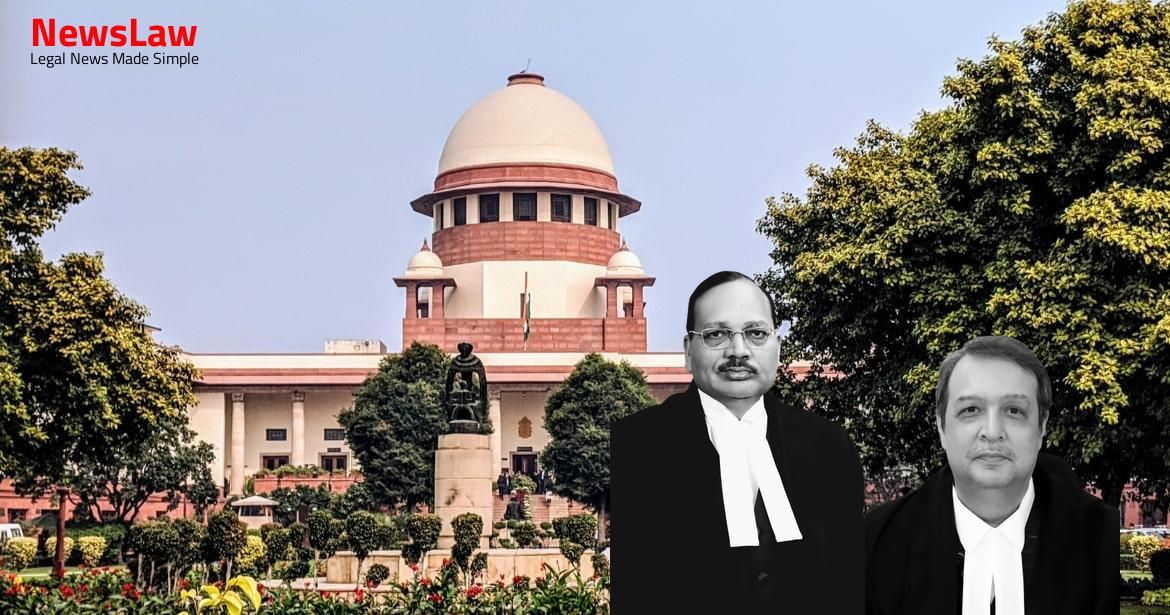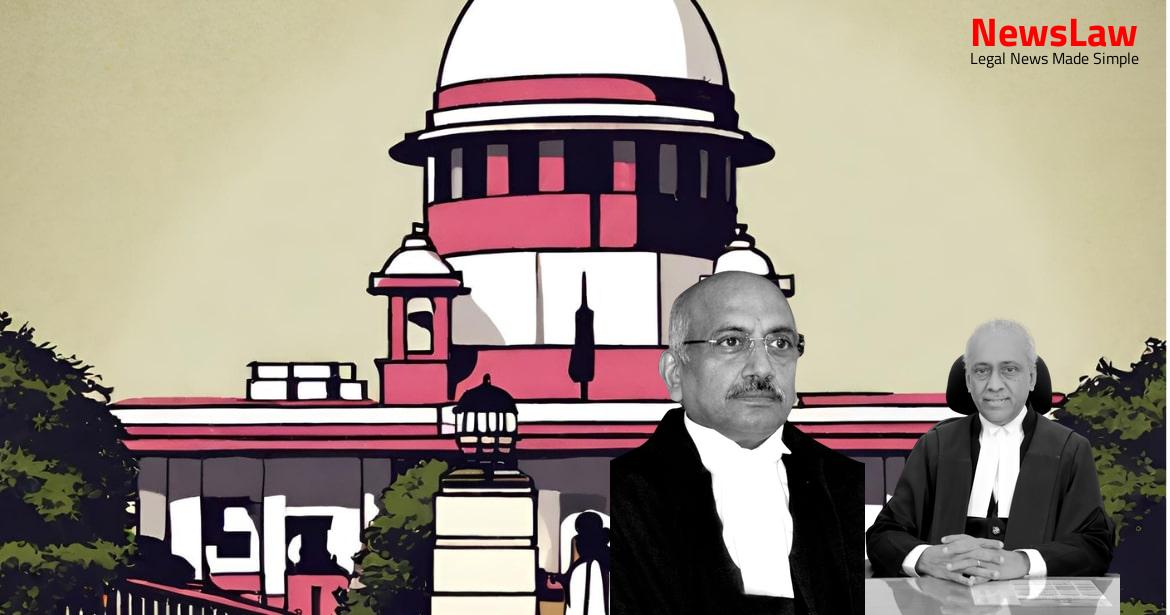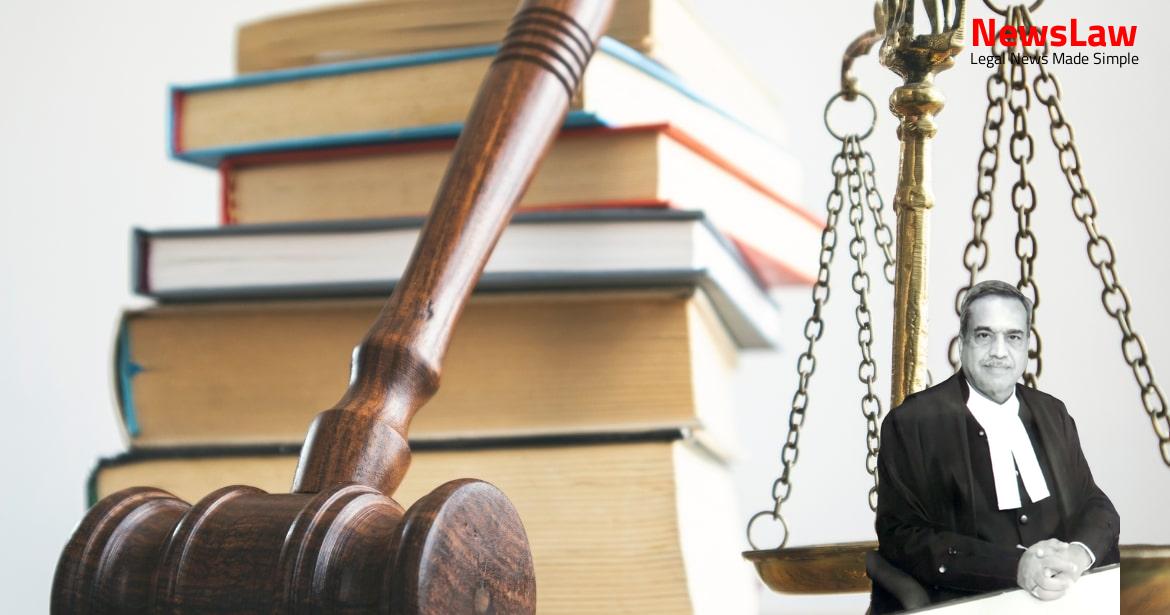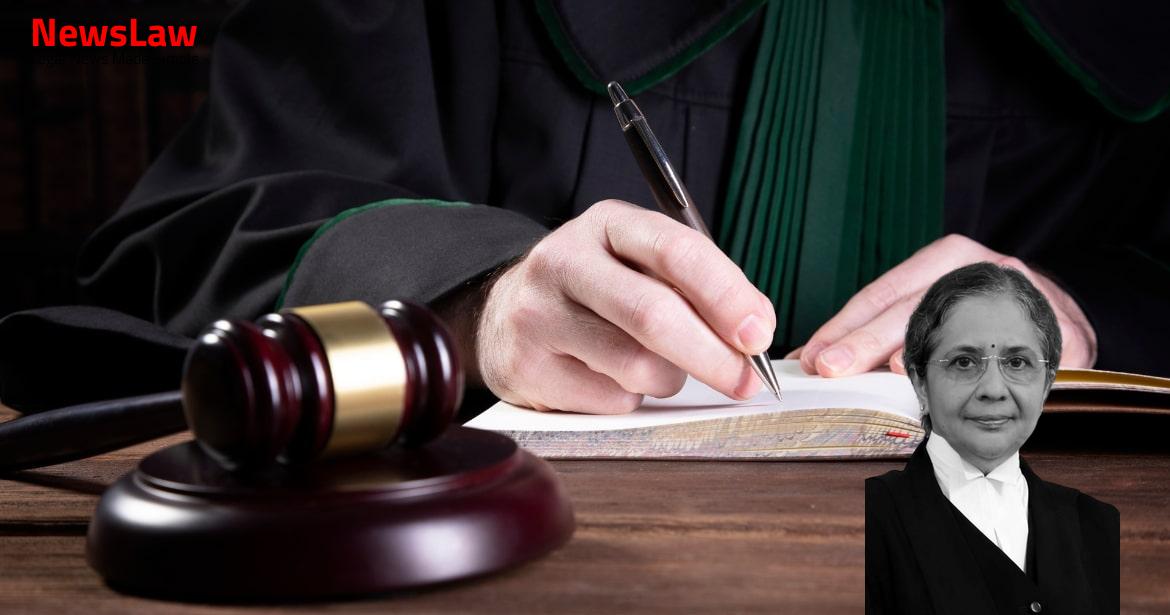27, Kila No 3 min (2-9), 4 min (4-15), 7(8-0), 14(4-0) situated in the revenue estate of Village Tigra, Tehsil and District Gurgaon (hereinafter, ‘Concerned Property’) which the Appellants jointly owned to the extent of their respective shares.
1 to 4 agreed to sell their share to the extent of 4/5 of the Concerned Property while in the second agreement, Appellant No 5 agreed to sell the remaining 1/5 share to the Respondent which accrued to her and her minor son. Their case is that in furtherance of the agreements, Appellants appeared before the Sub-Registrar, Gurgaon on the Date of Execution but the Respondent failed to appear before the Sub-Registrar for the purpose of executing the sale deed and payment of balance sale consideration.
The Appellants served legal notices dated 18.08.2004 on the Respondent giving an additional opportunity to him to appear before the Sub-Registrar on 01.09.2004 to execute the sale deed as per the terms of the Sale Agreements. However, during the pendency of the suit before the Trial Court, State of Haryana initiated acquisition proceedings vide notification dated 12.12.2008 issued under Section 4 of Land Acquisition Act, 1894. Apart from the relief of specific performance, he additionally prayed that a decree of permanent injunction be passed to the effect that the Concerned Property cannot be sold to any third party, possession must be granted to him along with a declaration that the Sale Agreements were still binding.
The High Court in its impugned judgment made two observations which are pertinent to note – first that no evidence was led by the parties to prove whether they took requisite steps to obtain the NOC under Section 7A of HUDA Act and; second that presence of Appellants before the Sub-Registrar on 31.08.2004 or 01.09.2004 when last opportunity to execute the sale deed was granted to Respondent, was doubtful as the evidence of marking their presence was not proved and that legal notices dated 18.08.2004 were not served on the Respondent.
Also Read: https://newslaw.in/case-type/criminal/analysis-of-cheating-and-forgery-in-passport-case/
Siddharth Mittal, learned counsel for the Appellants, contended – Firstly, that all the courts below have failed to note that time was the essence of contract as per the Sale Agreements under Section 55 of The Indian Contract Act, 1872. Sonali Karwasra Joon, learned counsel for the Respondent, argued that – Firstly, the Appellants were unwilling and they failed to perform their contractual obligations, especially regarding securing NOC under Section 7A of HUDA Act.
In other words, she argued that securing NOC under Section 7A of HUDA Act was solely the responsibility of the Appellants, irrespective of the onus fastened on the Respondent under Clause 8 of the Sale Agreements. It must be noted that the Respondent on coming to know about the factum of release, had directly approached this Court against the First Appellate Court’s decision via SLP (C) No 11901 of 2022 but the same was disposed of with liberty to approach the High Court in the second appeal under Section 100 of the Code of Civil Procedure, 1908. In this respect, we must now take note of Section 55 of Contract Act which stipulates the aftermath in case of failure to perform contractual obligations at fixed time. Effect of acceptance of performance at time other than that agreed upon.-If, in case of a contract voidable on account of the promisor’s failure to perform his promise at the time agreed, the promisee accepts performance of such promise at any time other than that agreed, the promisee cannot claim compensation for any loss occasioned by the non- performance of the promise at the time agreed, unless, at the time of such acceptance, he gives notice to the promisor of his intention to do so. Even in the legal notices dated 18.08.2004, through which last opportunity was extended to Respondent to execute the sale deed, the factum of time being an essential condition for performance was reiterated. The assumption was that grant of specific performance would not prejudice the vendor defendant financially as there would not be much difference in the market value of the property even if the contract was performed after a few months. We can take judicial notice of the comparative purchase power of a rupee in the year 1975 and now, as also the steep increase in the value of the immovable properties between then and now.
(iii) Every suit for specific performance need not be decreed merely because it is filed within the period of limitation by ignoring the time-limits stipulated in the agreement. The courts below have harped on the inability of the Appellants to procure the necessary NOC under Section 7A of HUDA Act, to hold that they were non-cooperative and willfully avoiding the performance of their contractual obligation. Additionally, since Respondent has led no evidence to indicate that he took any proactive steps to obtain the purported NOC necessary to execute the sale deed, we must hold that the plea of non-cooperation against the Appellants in respect of obtaining the NOC are not made out by the Respondent. However, this stand cannot sustain for the reason that neither he raised such plea before the courts below nor adduced any evidence to suggest that on the Date of Execution, the Concerned Property was within the five kilometre radius of Municipal Area as specified under Section 2(o) of the HUDA Act.
Finally, we must shift our attention to the High Court’s observation that the presence of Appellants before the Sub-Registrar was doubtful on 31.08.2004 and 02.09.2004 as the affidavits of their presence were not proved in the evidence. That if the Second Party is not able to execute the sale deed on the prescribed date then the First Party will be entitled to confiscate the earnest money” [Emphasis Applied] 31.
The proviso to sub- Section (2) further says that even if such relief was not specifically claimed in the plaint, it is the discretion of the Court to permit the plaintiff to amend the plaint “at any stage of the proceedings” and allow him to include the claim for refund of the earnest money or deposit paid.
Also Read: https://newslaw.in/supreme-court/discrepancy-in-date-of-birth-courts-legal-analysis/
The court, however, has been vested with wide judicial discretion to permit the plaintiff to amend the plaint even at a later stage of the proceedings and seek the alternative relief of refund of the earnest money. In the absence of such a prayer, it is difficult to accept that the courts would suo-moto grant the refund of earnest money irrespective of the fact as to whether Section 22(2) of SRA Act is to be construed directory or mandatory in nature. Instead, reliance was placed on Fateh Chand to state that the courts were duty bound to ascertain reasonable compensation in each case. The section does not confer a special benefit upon any party; it merely declares the law that notwithstanding any term in the contract predetermining damages or providing for forfeiture of any property by way of penalty, the court will award to the party aggrieved only reasonable compensation not exceeding the amount named or penalty stipulated. The court has to adjudge in every case reasonable compensation to which the plaintiff is entitled from the defendant on breach of the contract. In other words, if the payment is made only towards part-payment of consideration and not intended as earnest money then the forfeiture clause will not apply.” In sum and substance, the Appellants contend that forfeiture of sum is justified when it is – (a) clearly stipulated as earnest money; (b) forms part of sale consideration and (c) intended to be in the nature of ‘guarantee for the due performance of the contract’, and (d) the binding agreement between the parties provides its forfeiture in the event of breach of contract. In other words, all pre-estimated amounts which are specified to be paid on account of breach by any party under a contract are covered by Section 74 of Contract Act as noted by this court in Kailash Nath Associates v DDA. But if the compensation named in the contract for such breach is genuine pre-estimate of loss which the parties knew when they made the contract to be likely to result from the breach of it, there is no question of proving such loss or such party is not required to lead evidence to prove actual loss suffered by him.
The Sale Agreements should have been rightly held to be terminated instead of being declared impossible to perform. (SURYA KANT)
Case Title: DESH RAJ Vs. ROHTASH SINGH (2022 INSC 1279)
Case Number: C.A. No.-009217-009217 / 2022



